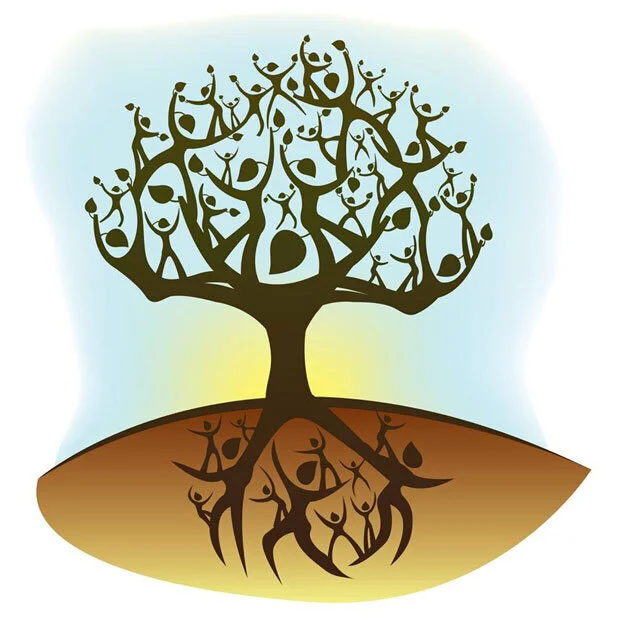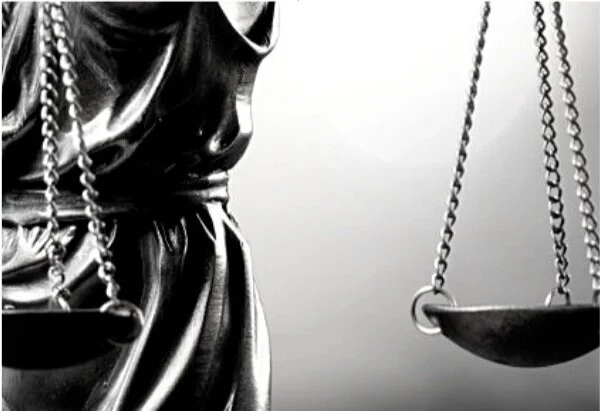The Stories We Tell (Part 5)
/In the previous blogs reflecting on “The Stories We Tell’ about ourselves and our life journey, we described different scenarios that seemed to cause a blockage of energy in the family system that impacted the next generation. In this post, the entanglement is rooted in a historical event that happened two generations prior to the client’s disabling depression.
Give and Take
In the previous post, we introduced a set of main principles in Constellation Work called “Orders of Love” which help us see what is out of order in our family system and give us a roadmap for how to be in right relationship. These orders can become an important lens through which we view relationships and interactions in our personal and professional lives. They help direct us in exploring how symptoms that upset our sense of well-being in any area of our life, whether physical, emotional, relational, spiritual, or occupational, make sense when viewed from this broader lens. We explored belonging and precedence through case study examples. Now, we examine the next Order of Love:
Relationships work best when there is a balance of Give and Take
Here, we take a deep dive into how a serious imbalance between giving and taking trapped a very successful businessman in a haze of disabling depression two generations after the deed.
Case Example: "Lawrence"
“Lawrence” was a 50-something year-old man who ran a very successful business. He came to a Constellation workshop because of a pattern of serious depression, which seemed to overwhelm him when he made a particularly lucrative business deal. Everything else in his life was going well, and this symptom did not seem to be connected directly to any particular stressors in his life. Yet, the depression was serious enough for him to be hospitalized. Since no traditional treatment for depression was working, he decided to attend a Constellation workshop in the hope of uncovering whatever was holding him back from enjoying the fruits of his labor and sacrifices.
After identifying the problem distressing Lawrence, the facilitator asked Lawrence to set up representatives for himself, his father and his grandfather. (The facilitator later described her intuition that work problems are often connected to the father’s line.) Lawrence placed representatives for himself, his father and his grandfather in a line—all facing forward. Immediately, his representative turned around and looked at the “grandfather,” who subsequently put his head down.
The facilitator asked Lawrence what his grandfather had done for work. He replied, “He ran a factory.” The facilitator continued to query about where and when this grandfather lived and worked, and Lawrence answered, “In Germany, during the war.” The observers in the group all held their breath sensing this information to be very relevant to the story, while Lawrence looked innocent and a bit confused.
The facilitator then asked for 3 volunteers to stand before the grandfather. The grandfather looked at them with guilt, and his eyes began to fill up. “These are the people who suffered.” It was clearly an accurate picture of his grandfather’s “sin,” as the facilitator’s words were in alignment with how the three representatives described feeling weak, powerless and hopeless. Lawrence's representative had begun to cry, and when asked where he wanted to stand, he moved closer to the “victims,” saying to his grandfather, “I stand with them.”
The grandfather began to sob. When he calmed down, he was requested to say to his grandson (Lawrence’s representative), “This is my guilt. Leave it with me.” There was a loud release of breath as the truth of the resolution statement—acknowledging the Grandfather’s responsibility—resonated with the observers and with Lawrence, who began to shake his head in the affirmative and looked energized, sad, and validated.
Deeper Meaning Revealed
This Constellation illustrates how an imbalance is created when someone in one generation takes more than they deserve, or unfairly uses others for their own benefit without compensation. The details are not necessarily important, despite our tendency to want to know the whole story. The deeper meaning revealed is that two generations later, Lawrence carried his grandfather's unpaid debt, not so much because of what his grandfather had done, but because the real victims of the story were never acknowledged and compensation was never made.
Instead, the story passed down by the family was that the grandfather had been a brilliant businessman who was revered by everyone for his generosity and smarts. Lawrence had benefited from this via his status in the community; he had also benefited financially, such that he was able to eventually build his own successful business. The missing piece was the story of those who had suffered and sacrificed in order for the grandfather to have been successful in the first place.
With this piece uncovered, Lawrence could finally enjoy his life; he was able to let go of his depression once he could see the roots (his identification or entanglement with his grandfather), could acknowledge who and what was missing from the story (the sacrifice of the “victims”), and could consciously return to his grandfather what belonged to him (guilt). Unconscious loyalty was then replaced with conscious love.
While this may sound easy and perhaps a bit trite, this Constellation had resounding results. As Lawrence’s depression dissipated, he began to enjoy his life and his family more readily. Soon after the Constellation, he began contributing to a scholarship fund for boys and girls of faith who couldn’t afford to go to college. He later described this gesture of giving as one small way of symbolically balancing what had been taken by his grandfather decades ago.
Seeing the Reflection
via Spirit of Adventure
No matter how reprehensible the behavior of another, we can trace the thread of suffering back to the root cause of unacknowledged Trauma. Regardless of whether a person witnesses it or experiences it directly, Trauma will leave an indelible mark on our souls. Depending on who we identify with, this wound often morphs into a tendency to become the perpetrator or the victim in yet another round of suffering. This keeps people trapped in a cycle of victimization and perpetration from one generation to another; however, it all starts with the unacknowledged Trauma.
On a larger scale, we can see these dynamics getting played out in our present-day society, for example, in the refusal of some to see various inequities. These blind spots about history can be directly traced back to loyalties to a way of life enjoyed by our ancestors. “Seeing” and “acknowledging” what is and what was cruel and unjust may be experienced as disloyalty, a sentiment we often hear echoed as rallying cries.
At the same time, the systemic Order of Love that states “Everyone belongs and has a rightful place,” points us to the need to accept one another. It calls us to recognize and honor that those most vocal against change in how we treat the “other” may also be carrying hundreds of years of trauma; after all, so many have come to this land under duress of religious persecution, poverty, and other forms of powerlessness. Along the perilous journey, they suffered and lost loved ones, only to face insecurity and adversity to survive in an unfamiliar and oftentimes unsafe land. The problem is not about deciding who is right and who is wrong, but rather, a failure to acknowledge that each group has had a history of Trauma that continues to live in their bodies to this day, tinting how they experience the events of the day.
While the debate forges on—who belongs and who doesn’t, who is deserving and who isn’t—with more and more alienation and polarization, it would serve us all well to remember the systemic or natural orders of love:
Everyone belongs and everyone has a place.
Those who came first deserve respect.
There needs to be a balance of give and take.
The challenge of societal equity, as well as of most other personal, relational and collective conflicts, can be defined by seeing the underlying dynamics through a systemic lens. Constellation work does this one person, one family and one issue at a time. For peace to reign and harmony to be created, we have to “see” from our hearts and “acknowledge” what was, honor all who have suffered, and return what belongs to others so future generations do not have to continue to carry it. Then, with gratitude, we can take up our lives wholeheartedly.
Share your comments at the bottom of the page.
© Whatismyhealth


























Understanding our attachment styles can help us bypass destructive strategies and find a more authentic connection.